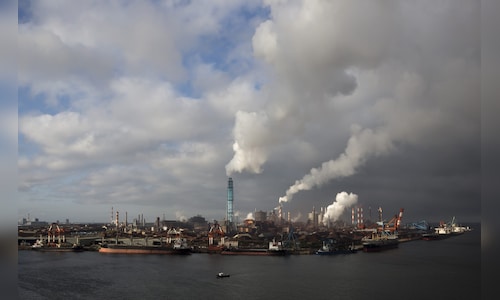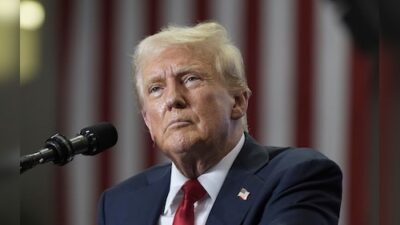On June 14, Trump signed an executive order stating that the merger could proceed if the companies reached an agreement with the Treasury Department addressing national security issues related to the deal. The companies subsequently announced that they had signed the agreement, meeting the conditions of Trump’s directive and securing approval for the merger.
”We are eager to implement our commitments to restore the greatness of American steelmaking and manufacturing,” the companies expressed in a statement, extending their gratitude to Trump.
They noted that the agreement entails $11 billion in new investments by 2028, alongside governance, production, and trade commitments. According to a spokesperson for Nippon Steel in Tokyo, the company is set to acquire a 100% stake in US Steel.
No details were provided regarding the “golden share” the companies pledged to issue to the US government, raising concerns about the level of US oversight. US Senator David McCormick from Pennsylvania, where US Steel is based, remarked last month that this golden share would grant the government veto power over significant decisions concerning the American steel icon.
Reports from Reuters indicated that Nippon Steel would invest an additional $3 billion to establish a new mill after 2028.
This acquisition positions the struggling US firm to receive essential investments, enabling Nippon Steel to take advantage of numerous American infrastructure initiatives while its foreign rivals are subject to steel tariffs of 50%. The Japanese company also avoids the $565 million in breakup fees it would have incurred had the companies not obtained the necessary approvals.
For Nippon Steel, the world’s fourth-largest steel producer, establishing a presence in the US is crucial to its global expansion strategy. The US steel market, particularly for high-grade steel—which is Nippon Steel’s specialty—continues to grow amid increasing global trade tensions.
’GREAT PARTNER’
Nevertheless, some investors in Nippon Steel are worried about the immediate financial strain due to the scale of the new investment commitments.
The Japanese government, eager to finalize a trade deal with the US before Trump meets with Prime Minister Shigeru Ishiba at the Group of Seven summit commencing Sunday, praised the Nippon-US Steel agreement.
”The government of Japan appreciates the decision made by the US government, as we believe this investment will enhance innovation capabilities in both the US and Japanese steel sectors, further strengthening the close partnership between our nations,” stated Economy, Trade and Industry Minister Yoji Muto on Saturday.
Friday’s announcement was not a foregone conclusion, even though many investors deemed approval likely after Trump’s appearance at a rally on May 30, where he vaguely endorsed an ”investment” by Nippon Steel, dubbing it a ”great partner.”
Earlier on Friday, shares of US Steel had fallen after a Nippon Steel executive informed Japan’s Nikkei newspaper that the acquisition required ”a degree of management freedom” to proceed, following Trump’s assertion that the US would maintain control with the golden share.
The bid has encountered resistance ever since Nippon Steel initiated it in December 2023.
Following opposition from the United Steelworkers union last year, both then-President Joe Biden, a Democrat, and Trump, a Republican, voiced their disapproval as they sought to gain favor with voters in the pivotal state of Pennsylvania during the presidential campaign.
Just before leaving office in January, Biden blocked the deal on national security grounds, resulting in lawsuits from the companies, which contended that the national security review was biased. The Biden administration disputed this allegation.
The steel firms recognized a new opportunity under the Trump administration, which reopened a 45-day national security review of the proposed merger in April.
However, Trump’s public statements, which ranged from welcoming a straightforward ”investment” from the Japanese company to suggesting a minority stake for Nippon Steel, created confusion.



